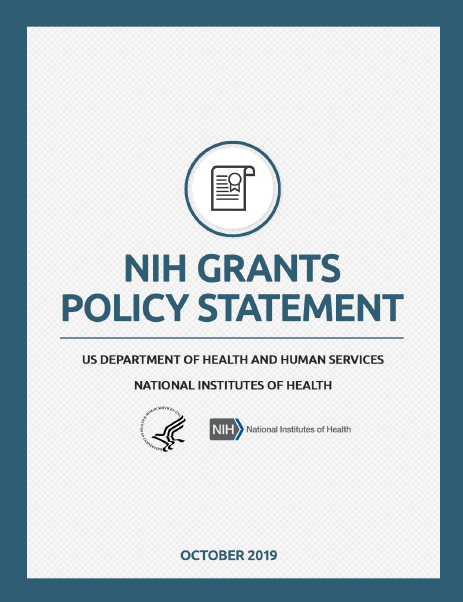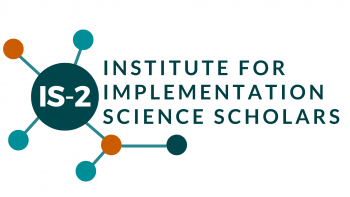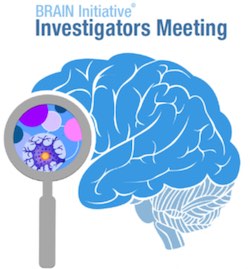Greetings and Happy New Year from the NIDA Office of Research Training! We hope that you all had a pleasant holiday season and look forward to the new year and all the exciting possibilities that it holds including new opportunities and efforts to help support and sustain early career scientists in research.
The Next Generation Research Initiative is an NIH effort to address the challenges faced by early career scientists as they advance their careers and establish their independent research programs. Recent progress made with this initiative was highlighted by Dr. Michael Lauer, Deputy Director for NIH Extramural Research, at the December 2019 meeting of the Advisory Committee to the Director (ACD) which includes extension periods for the Early Stage Investigator (ESI) status and eligibility windows for K99/R00 Awards (discussed below) and analyses on grant funding for ESIs and at-risk investigators. In addition, a new award was announced specifically developed for ESIs, established in memory of Dr. Stephen Katz, Director of the National Institute of Arthritis and Musculoskeletal and Skin Diseases and his tremendous contributions to the scientific community. The Katz Award will be an R01-investigator initiated award open only to ESIs that provides five years of funding to support the development of a new line of research. No preliminary data are allowed (and applications that include such data will be withdrawn), but applications should include scientific advisors or consultants with appropriate expertise to help guide the project. This program is expected to be launched in the coming months, so please keep your eye on the Guide.
Dr. Lauer also highlighted increased support provided in fiscal year 2020 for the NIH Loan Repayment Program, raising the maximum annual support to $50,000 for qualified applicants and an expansion of the Health Disparities Loan Repayment Program to all NIH Institutes (highlighted in our September 2019 Newsletter). Scientific expansion of the LRP beyond the clinical, pediatric, health disparities, contraception and infertility, and clinical research from disadvantaged backgrounds programs is expected to be launched in fiscal year 2021 (applications due November 2020), so stay tuned.
Lastly, supporting early career scientists and the long-term stability of the biomedical research enterprise requires a collaborative effort among all institutions that conduct and support biomedical research. Based on the feedback received from the Request for Information (NOT-OD-19-085) for the Need for an NIH Administrative Data Enclave, NIH is moving forward with establishing a secure data environment (enclave) that would grant approved research organizations with controlled access to structured, de-identifiable NIH administrative and scientific information not available to the public. These data will be critical for monitoring the efficacy of current programs and inform the development of new ones to best protect and support the research enterprise. Details about the data enclave will be provided as they become available.
Several other important programs were discussed at the December 2019 ACD meeting including presentations from the Working Group on (Workforce) Diversity and the Working Group on Changing the Culture to End Sexual Harassment provided their final report. If you are not familiar with the ACD, this group assists the Office of the Director at NIH in developing major plans and policies, including how NIH allocates funds and resources. The advisory group meets twice a year and meetings are live streamed and archived via videocast. We encourage you to tune into these important discussions so that you can learn more about the programs that NIH is developing and join in on the conversation by responding to requests for information.
Did You Know?
REMINDER: Are you planning to attend the annual meeting of The College on Problems of Drug Dependence in June 20-24, 2019? There are several travel award programs that you can apply to that will help defray the costs of attending. NIDA contributes support to two of these programs: 1) NIDA Director’s Travel Awards and 2) NIDA Women & Sex/Gender Junior Investigator Travel Awards – applications are due January 13, 2020. Receipt of the NIDA Director’s Travel Award includes participation in the NIDA Grant-Writing and Career Development Workshop held on the first day of the meeting prior to the opening reception. Don’t worry – even if you aren’t selected for a NIDA Director’s Travel Award, you can still attend the NIDA Grant-Writing/Career Development Workshop. Stay tuned for information about how to register for that.
- Save the Date! Fostering Rigorous Research: Lessons Learned from NHP Models and Charting the Path Forward
February 18-19, 2020
Rigor and reproducibility in research are essential and NIH is committed to ensuring its research investment supports the most rigorous science regardless of species. Because working with nonhuman primate (NHP) models poses unique challenges, NIH is convening a workshop to identify emergent challenges facing the conduct, reproducibility, and translation of rigorous research when working with NHP models and to discuss strategies for addressing these challenges. Registration and agenda are forthcoming, and the workshop will be videocast.
Policy and Program Updates
- NIH has updated its extension policy eligibility window for Pathway to Independence Awards (K99/R00). Extensions are granted on a case by case basis for various reasons including medical concerns, disability, family care, extended periods of clinical training, natural disasters, and active-duty military service. Within the 4-year K99 eligibility window, NIH will approve an extension of one year for childbirth. More information can be found at grants.nih.gov/grants/guide/notice-files/NOT-OD-20-011.html. If you have any questions about how to apply for these extensions, please send an email to NIDA_Training@nida.nih.gov.
- A Notice of Special Interest (NOT-OD-20-038) for Administrative Supplements to Support Research on Bioethical Issues was published requesting applications to support research on bioethical issues to develop an evidence-base that may inform future policy directions. Applicants may propose to supplement parent awards focused on bioethics or to add a component related to bioethics to a parent award in which bioethics was not the focus. Note that applications must be within the general scope of the parent award. Applications for projects that do not propose a research question or research aim specific to a bioethical issue (e.g. applications that propose only to support training or educational activities that do not involve investigation of a research question) will not be considered. The notice provides additional details relevant for applications submitted to specific NIH Institutes. Applications are due March 20, 2020.
- HHS plans to convene an NIH Human Fetal Tissue Research Ethics Advisory Board for fiscal year 2020 and is seeking nominations for members from the research community. The Ethics Board will advise, consult with, and make recommendations to the U.S. Department of Health and Human Services (HHS) Secretary regarding the ethics of research involving human fetal tissue (HFT) proposed in competitive NIH grant and cooperative agreement applications. The Board will be composed of at least 14, but no more than 20, individuals who are not federal employees. The appointed members of the Board will include no fewer than one attorney; no fewer than one ethicist; no fewer than one practicing physician; and no fewer than one theologian. No fewer than one-third and no more than one-half of the appointed members will be scientists with substantial accomplishments in biomedical or behavioral research. The Ethics Board will be governed by the provisions of the Federal Advisory Committee Act, as amended (5 U.S.C. app.), which sets forth standards for the formation and use of advisory committees. Questions about this Advisory Board should be directed to the NIH Office of Science Policy: Telephone: 301-496-9838 or Email: SciencePolicy@od.nih.gov
- For applications with due dates on or after May 25, 2020, NIH is transitioning to using FORMS-F. This involves several changes affecting research training grants, fellowships, and career development award applications. A detailed list of all changes can be found at grants.nih.gov/grants/guide/notice-files/NOT-OD-20-033.html.
NIH published the revised NIH Grants Policy Statement (NIHGPS) in December 2019. This applies to all grants and cooperative agreements with budget periods beginning on or after October 1, 2019. While there is no new material, the revised edition includes new and modified requirements, clarifies policies, and implements changes in statutes, regulations, and policies that have taken place since the previous version.
Funding Opportunities
For a full list of training, fellowship, career development, and research education funding opportunities, including parent announcements, please see the NIH Research Training and Career Development webpage.
Predoctoral Training
- Jointly Sponsored Ruth L. Kirschstein National Research Service Award Institutional Predoctoral Training Program in the Neurosciences (T32 Clinical Trial Not Allowed) PAR-20-076
- Ruth L. Kirschstein National Research Service Award (NRSA) Individual Predoctoral Fellowship to Promote Diversity in Health-Related Research (F31-Diversity) PA-19-196
- NIH Blueprint Diversity Specialized Predoctoral to Postdoctoral Advancement in Neuroscience (D-SPAN) Award (F99/K00) RFA-NS-19-011
- Drug Abuse Dissertation Research (R36) PA-16-443
Postdoctoral Training
- BRAIN Initiative Advanced Postdoctoral Career Transition Award to Promote Diversity (K99/R00 Clinical Trial Required) RFA-19-044
- BRAIN Initiative Advanced Postdoctoral Career Transition Award to Promote Diversity (K99/R00 Independent Clinical Trial Not Allowed) RFA-19-043
- BRAIN Initiative Fellows: Ruth L. Kirschstein National Research Service Award (NRSA) Individual Postdoctoral Fellowship (F32) RFA-MH-18-510
Career Development
- Notice of NIDA Participation in PAR-20-039, Support of Competitive Research (SCORE) Research Advancement Award (SC1 Clinical Trial Not Allowed) NOT-DA-20-025
- Notice of NIDA Participation in PAR-20-040, Support of Competitive Research (SCORE) Pilot Project Award (SC2 Clinical Trial Not Allowed) NOT-DA-20-026
- Notice of Special Interest (NOSI): Availability of Administrative and Revision Supplements to Expand Vaping Research and Understand NOT-HL-19-724 Applications in response to this NOSI must be submitted using PA-18-591 or PA-18-935
- Short-term Mentored Career Enhancement Awards in Mobile and Wireless Health Technology and Data Analytics: Cross-Training at the intersection of Behavioral and Social Sciences and STEM Disciplines (K18 Independent Clinical Trial Not Allowed) PAR-18-881
- Short-term Mentored Career Enhancement Awards in Mobile and Wireless Health Technology and Data Analytics: Cross-Training at the intersection of Behavioral and Social Sciences and STEM Disciplines (K18 Independent Clinical Trial Required) PAR-18-882
- NIDA Mentored Clinical Scientist Development Program Award in Substance Use and Substance Use Disorder Research (K12 Clinical Trial Optional) PAR-18-746
Research Education
- NIH Blueprint Program for Enhancing Neuroscience Diversity through Undergraduate Research Education Experiences (BP-ENDURE) (R25 Clinical Trial Not Allowed) RFA-NS-20-015
- NIH Blueprint for Neuroscience Research Education Program on Translational Devices (R25 Clinical Trial Not Allowed) RFA-NS-20-003
- NIDA Research Education Program for Clinical Researchers and Clinicians (R25 Clinical Trial Not Allowed) PAR-19-258
- Providing Research Education Experiences to Enhance Diversity in the Next Generation of Substance Abuse and Addiction Scientists (R25 - Clinical Trials Not Allowed) PAR-19-246
- Alcohol and Other Substance Use Research Education Programs for Health Professionals (R25 Clinical Trial Not Allowed) PAR-19-207
- Summer Research Education Experience Program (R25 Clinical Trial Not Allowed) PAR-19-197
Upcoming Events
- 2020 Genetics and Epigenetics Cross-Cutting Research Team (GECCRT) Meeting
January 13-14, 2020
Rockville, MD
The GECCRT is sponsored by NIDA with participation by NIAAA and NIMH. The mission is to develop NIDA’s portfolio of genetic and epigenetic research relevant to substance use disorders and addictive behaviors. The GECCRT coordinates the programs to meet strategic mission research objectives, including the development of a workforce to meet current and future needs. Meeting details can be found at www.nida.nih.gov/research/research-data-measures-resources/genetics-research-resources/cross-cutting-research-teams-workgroups-interest-groups-consortia/genetics-epigenetics-ccrt/nida-genetics-consortium-ngc/nida Institute for Implementation Science Scholars (IS-2)
June 21-26, 2020
St. Louis, MO
Applications are due January 29, 2020 (9am CT/10am ET)
The Institute for Implementation Science Scholars (IS-2) at Washington University in St. Louis is a mentored training program for faculty interested in applying dissemination and implementation (D&I) methods to proven behavioral and social science research (BSSR) to eliminate chronic disease disparities. Scholars should be early career researchers or mid-career scholars who want to pursue D&I research in chronic disease prevention. A diverse set of individuals from a range of disciplines, institutions, and geography are encouraged to apply. Meeting details can be found at is2.wustl.edu/.- National Advisory Council on Drug Abuse
January 30, 2020
Rockville, MD
The National Advisory Council on Drug Abuse (NACDA) will convene a public session from 10:30 am – 4:30 pm. NACDA advises the NIDA Director on all policies and activities relating to the conduct and support of drug abuse research, research training, and other programs of the Institute and serves as the second level of review for grant applications. The agenda and videocast link will be updated at www.nida.nih.gov/about-nida/advisory-boards-groups/national-advisory-council-drug-abuse-nacda/national-advisory-council-agenda. 6th Annual BRAIN Initiative Investigators Meeting
June 1-3, 2020
Arlington, VA
The BRAIN Initiative Meeting will convene awardees, staff, and leadership from the contributing federal agencies (NIH, NSF, DARPA, IARPA, and FDA), plus representatives and investigators from participating non-federal organizations and members of the media, public, and Congress. The purpose of this open meeting is to provide a forum for discussing exciting scientific developments and to identify areas for collaboration and research coordination.- The College on Problems of Drug Dependence (CPDD) 81st Annual Meeting
June 20-24, 2020
Hollywood, FL
CPDD provides a national and international forum for scientists of diverse backgrounds to advance the understanding of molecular-neurobiological aspects of addictive disorders and, by the application of new scientific knowledge, to improve and develop treatments utilizing novel behavioral and pharmacological therapies. Registration and meeting details can be found at cpdd.org/.






